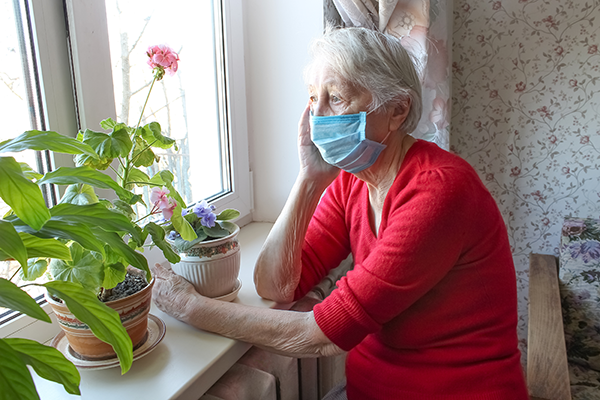Pets provide a lot of enjoyment and comfort to their owners. Your pet is probably…

America’s elderly are facing increasing incidents of mistreatment and abuse as social isolation during the pandemic creates more vulnerabilities, both at home and in a long-term care facility. Stay-at-home guidelines isolate seniors from the systems that can protect them like medical providers, congregations, extended family, and senior centers. The high rate of coronavirus deaths for those Americans 70 and older increases fear and their dependency on those who might seek to take advantage of them. Sadly, most of these abusers are family members, such as an adult child or spouse, followed by caregivers or staff in a long-term care facility.
Four Common Types of Elder Abuse
The Center for Disease Control and Prevention (CDC) lists four common types of elder abuse: physical, sexual, emotional, psychological, and neglect and financial abuse. Many incidents of elder abuse, neglect, and exploitation are underreported, especially during social isolation. According to a PBS report, Paul Caccamise, the vice president for program at Lifespan, Rochester, NY, says that the stream of calls reporting abuse is lower than usual. Yet, elder abuse has not gone away during the pandemic. Many referrals of abuse to Lifespan come from home care agencies, physicians, or hospitals, reporting suspected signs of abuse. Now that many older Americans are avoiding interactions with doctors and hospitals, the monitoring function is no longer available. Similarly, for those elderly in long-term care facilities, family members are no longer allowed direct access to check on the welfare of their loved ones.
Elder Abuse Issues During Coronavirus
This situation is not exclusive to New York. Across the country, the number of reports of elder abuse is decreasing during the coronavirus pandemic. The Minnesota Elder Justice Center’s executive director Amanda Vickstrom understands that although the quantity of cases is down, the amount of help our elder Americans need is up. About the disparity in case reports versus senior needs, Vickstrom states, “It doesn’t tell me that suddenly we’ve reduced elder abuse. It tells me that people are unable to reach out for help.”
Other support groups for the elderly like the National Clearinghouse on Abuse in Later Life (NCALL) are seeing similar trends. NCALL founder Bonnie Brandl says, “Abusers are using the threat of the virus and the isolation to provide misinformation to people.” Isolated seniors can fall prey to threats of being visited by a caregiver who may have been exposed to the coronavirus or sent to a nursing home where COVID-19 death rates are disproportionately high.
Caregiver promises to keep a senior safe if they hand over checks or other assets during this pandemic is not uncommon as many Americans have lost their jobs or have reduced hours of income and are facing financially tough times. If the senior lives with an abuser, the situation can become desperate as abusers can threaten to hurt or manipulate the senior who, in isolation, has little confidence to seek outside help. The coronavirus pandemic, which already disproportionately impacts older people’s health, makes them more vulnerable to abandonment, neglect, financial, emotional, sexual, and physical abuse.
The increase of seniors’ dependency on their caretakers at home and staff in long-term care facilities can incentivize abusers to target these older adults. Many seniors are targeted as they have resources saved, consistent monthly incomes from investment sources, or Social Security benefits. Desperate for their health and safety, many seniors will turn over their money, hoping that it will be key to their survival. There are also thousands of reports of scam artists offering bogus or nonexistent free home test kits or fake cures, posing as counterfeit charities, or preying on other virus-related fears to gain personal information or money.
How to Help Elderly in Isolation
If you have a senior family member who is socially isolated due to COVID-19, it is crucial to stay engaged with them to prevent their mistreatment. There are programs available that help those who face isolation to stay connected. AARP and the Tennessee Commission on Aging and Disability have programs that provide weekly phone checks provided by vetted volunteers who can spot trouble signs. There are other nonprofits such as FiftyForward, Senior Ride Nashville, Eras Senior Network of Wisconsin, and many others that check to see that seniors have proper resources during the pandemic such as food and medication. Volunteers will also address the emotional needs seniors have during isolation. For many seniors, it will be the only conversation they will have that day. Check with your community and see how you can best protect your senior during the social isolation and vulnerable times of the COVID-19 pandemic.
If you have questions or would like to discuss your particular situation with us, please don’t hesitate to reach out. Please contact our Natchez office at (601) 445-5011.



